Search Posts
Recent Posts
- Habemus papam: Americanus est! Pope Leo XIV, 267th Supreme Pontiff of 1.4 billion Catholics May 9, 2025
- The Real Housewives of Rhode Island coming to Ocean State May 8, 2025
- Homeless in RI: 2,000 homeless children – RFPs – May issue of Street Sights, by and for homeless May 8, 2025
- Rhode Island Weather for May 8, 2025 – Jack Donnelly May 8, 2025
- New CEO of RI Community Food Bank will be Melissa Cherney, CEO, Great Plains Food Bank, ND May 8, 2025
Categories
Subscribe!
Thanks for subscribing! Please check your email for further instructions.
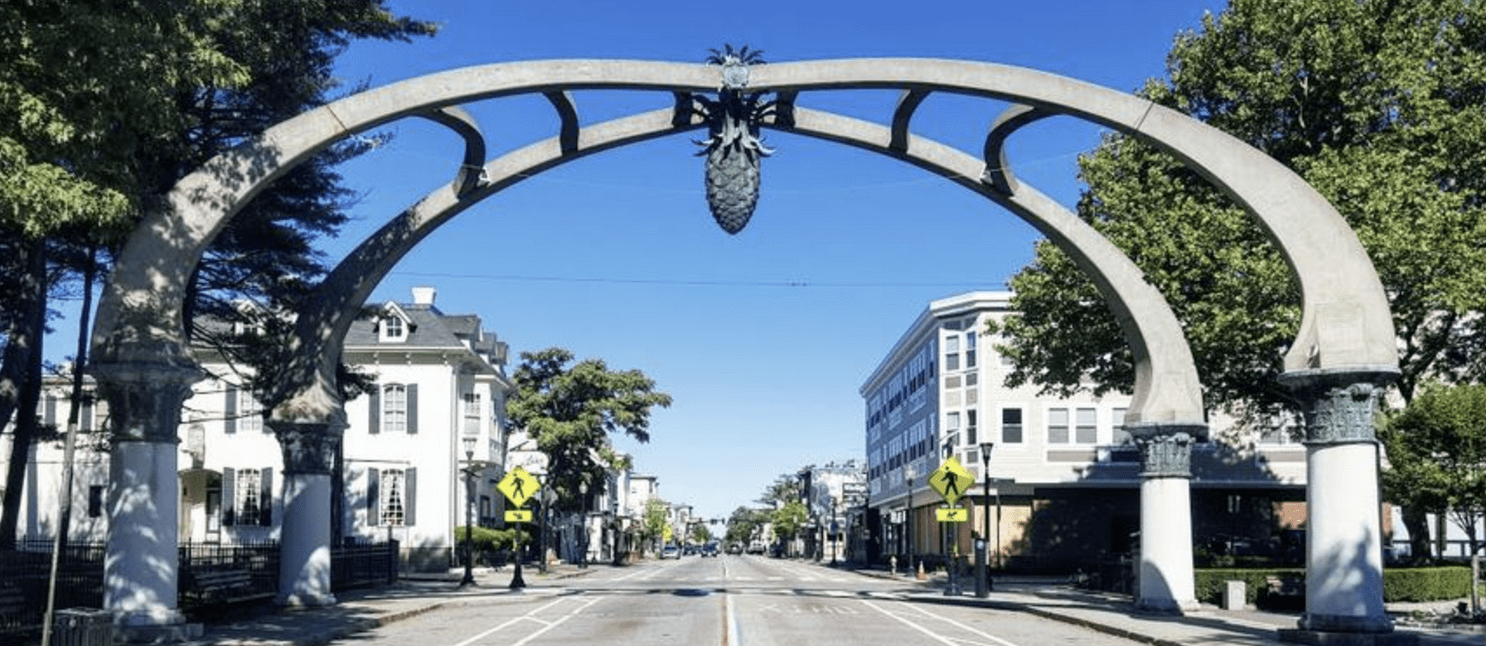
Federal Hill Identity Crisis – Chef Walter Potenza
by Chef Walter Potenza, contributing writer
The glorious second-oldest Italian immigration colony in North America struggles to reaffirm its dominance in the gastronomic palette of the state and nationally.
Friends:
In the mid-1980s, as I prepared to open my first restaurant in East Greenwich, Rhode Island, a seasoned Jewish rabbi imparted wisdom that has stayed with me throughout my career: “People should know in less than 15 seconds what the nature and objectives of your business are.” This advice transcends the boundaries of any industry, reflecting the essence of clarity and purpose.
This lesson feels particularly relevant now as we witness the closing of The Old Canteen. This landmark defined Federal Hill’s gastronomic and cultural soul for almost 70 years. Its departure is not just the end of an era but a moment of reckoning for a neighborhood once synonymous with vibrant Italian-American identity and culinary excellence. The closure of institutions like The Old Canteen underscores a larger question:
What does Federal Hill want to be in the next 25 years? And can we define it in less than 15 seconds?
Is it a tourist destination? A cultural hub? A culinary landmark? A place with no parking? A criminal ward? All of the above, or simply a cluster of restaurants trying to make ends meet while contrasting every possible classical gastronomic rule.
Let’s look into it!
Federal Hill, Providence’s historic Italian neighborhood, has long been the heart of Rhode Island’s Italian-American culture. This vibrant ward, situated west of downtown Providence, has been a melting pot of Italian immigrants since the late 19th century, earning its nickname “Little Italy.”
Home and fruit stand of the Cavicchio in 1917
Today, Federal Hill is undergoing a new transformation era, becoming a symbol of heritage and, hopefully, a renewed modern culinary destination after creative stagnation.
The Italian presence on Federal Hill began in 1886 when waves of immigrants from Italy arrived in search of better economic opportunities. Many early settlers came from southern Italian regions such as Campania, Abruzzo, Calabria, and Sicily. They brought their rich cultural traditions, religious customs, and, perhaps most importantly, their culinary heritage. {More here}
Over the decades, the area blossomed into a close-knit community anchored by its residents’ deep connection to food, family, and faith. Italian markets, bakeries, and restaurants sprung up along Atwells Avenue—the district’s main artery—creating a vibrant atmosphere reminiscent of Italy. Families established businesses that passed through generations, maintaining old-world traditions while adapting to life in America.
Little Italy has remained synonymous with Italian food for over a century. The neighborhood has attracted diners far beyond Rhode Island’s borders, from the rustic, homemade pasta and classic trattorias to upscale restaurants, ice cream parlors, bakeries, and eclectic bars. Landmarks like DePasquale Plaza, with its outdoor dining and iconic fountain, continue to provide a European flair that draws locals and tourists alike, even if only seasonally.
In the 1990s, Federal Hill was on the brink of decline, with boarded-up buildings, no uniform message on the horizon, and only seven viable restaurants keeping the lights on and the area alive. It was a period of stagnation, and the neighborhood’s culinary reputation was rapidly slipping away. However, this changed under the leadership of Mayor Vincent “Buddy” Cianci, whose efforts revitalized the Hill and elevated Providence as a national food city.
The bus trip to Boston to challenge the then-mayor, Menino, to claim gastronomic leadership as New England’s most creative food city was symbolic and remains one of the mayor’s decisive contributions to the city’s marketing spectrum. {Projo}
Moreover, the forward visions of people like Alan Costantino of the Venda pasta company opened the doors to visiting food celebrities like Giuliano Bugialli, Anna Tasca Lanza, Sirio Maccioni, and Stanley Tucci. In addition, Lum Gasbarro (in memoriam) of the homonymous wine emporium and several other business leaders created trust and professionalism, becoming the hallmark of New England’s states. Boston and other cities often emulated our concepts and incredible forward-thinking philosophy.
In less than seven years, new businesses dramatically increased the number of food and alcohol licenses. At one point, as many as 40 licenses operated within Atwells Avenue, all very successful. The success sparked a decisive positive fever among the residents.
Mayor Cianci’s vision and the growing attraction of Providence’s Barnaby Jones WaterFire show drew prominent journalists, authors, and food experts to the city. Federal Hill began to evolve into a destination for culinary excellence. The turning point came in 2000 when the International Association of Culinary Professionals (IACP) hosted its worldwide trade event in Providence.
This event featured some of the most influential names in the food world, including Thomas Keller, Emeril Lagasse, Martin Yan, Lidia Bastianich, Mario Batali, Douglas Rodriguez, Michael Ginoir, Walter Potenza, Nino D’Urso, Fabrizio Iannucci, and the iconic Julia Child. Their presence, alongside other prominent, widely recognized chefs, solidified Providence’s place on the national culinary map and positioned our city’s establishments as a constant presence in the newly launched Food Network.
Federal Hill underwent a significant transformation in the late 1990s. Esteemed organizations recognized the area’s renewed vibrancy and commitment to culinary excellence.
The James Beard Foundation, a highly regarded institution in American food culture, honored several Federal Hill establishments for their significant contributions to the nation’s culinary heritage.
Likewise, the American Academy of Hospitality Sciences, renowned for celebrating exceptional achievements in fine dining, welcomed one of the Hill’s restaurants into its esteemed ranks. (Star Diamond Award)
Furthermore, the Italian government’s Unioncamere and ISNART recognized Potenza’s Ristorante as the ambassador of Italy’s rich culinary heritage with the esteemed Ospitalita’Italiana Award for 10 consecutive years.
This global acknowledgment was a testament to the area’s unwavering commitment to preserving and promoting authentic Italian flavors, solidifying Federal Hill’s status as a culinary powerhouse and a beacon of culinary excellence where visitors could expect nothing but the best.
Federal Hill became a hub of exceptional dining and welcoming hospitality in just a few years. Restaurants that had previously faced challenges rose to prominence within American culinary culture, establishing Providence as one of the most esteemed food cities in the country. This revitalization paved the way for Federal Hill’s golden era, during which its restaurants, chefs, and local traditions gained local and national recognition.
In the words of the respected food journalist John Mariani: “Federal Hill in Providence can surely be annexed with major food cities in the land.”
Today:
Federal Hill’s culinary identity has evolved in recent years, embracing diversity and innovation. The area is now more than just an enclave of Italian cuisine. Instead, it has transformed into a ‘restaurant row,’ a destination for many international foods and dining experiences. From contemporary Middle Eastern eateries to Latin-inspired flavors, Federal Hill has embraced the changing demographics of Providence, offering a culinary map of the world within just a few blocks, sparking excitement and intrigue among its visitors.
Despite the recent influx of diverse cuisines, Federal Hill’s Italian essence remains its foundation. Restaurants like Angelo’s Civita Farnese, a staple since 1924, Camille’s Restaurant, and many others continue to serve traditional fares such as braciola, lasagna, veal Parmesan, osso buco, and much more. At the same time, a new generation of chefs, inspired by their Italian heritage, blends time-honored Italian recipes with contemporary techniques and offers inventive takes on classic dishes. Establishments such as Maria’s Cucina on nearby Broadway demonstrate a desire to continue with Italian cuisine’s enduring appeal and adaptability with a focus on research, education, and training.
The Italo American Club on Broadway. Spertini’s Maria’s Cucina Restaurant
Many Italian markets—such as Venda Ravioli, Tony’s Colonial, and Roma’s—remain family-run operations, providing the finest imported olive oils, pasta, cheeses, and gourmet delicacies. Some bakeries continue to dish out great sfogliatelle, wine biscuits, cannoli, and struffoli. These establishments are not just businesses but custodians of Federal Hill’s past charm, giving customers a slice of Italy and offering ingredients that contribute to the authentic dining experiences the area is famous for.
Their continued support and renewed passion are crucial in preserving Federal Hill’s culinary heritage.
However, despite its past success, Federal Hill has yet to be immune to challenges. The COVID-19 pandemic, in particular, took a toll on many small businesses, including restaurants, leading to some permanent closures. Gentrification and changing consumer tastes have also reshaped the Hill. Some long-time residents have voiced concerns that Federal Hill is losing its Italian identity as newer, non-Italian establishments open up. However, others see it as a natural evolution—a sign of the neighborhood’s ability to adapt to changing times while maintaining its cultural roots. Nevertheless, today, and with evident changing times, the hub needs help to reclaim the leadership and prestige it once enjoyed.
The Hill has deviated from the format that made it famous and now relies on its past achievements rather than continuing to evolve and trace its destiny.
Today, our beloved territory stands at a unique intersection of tradition and modernity. While it remains a beloved symbol of Rhode Island’s Little Italy and one of America’s oldest Italian immigration colonies, the neighborhood also expands its culinary horizons, solidifying its status as a diverse restaurant destination. As Federal Hill moves forward, it is steadfastly committed to preserving its rich Italian heritage.
The neighborhood’s soul remains intact, deeply connected to the Italian immigrant experience. Walking down Atwells Avenue, with its array of Italian flags, packed sidewalks, pastry shops, and old-school cafes, one can still feel the heartbeat of the community that built this neighborhood. This commitment to preserving its Italian roots ensures that the flavors of Italy will always have a place in Rhode Island, but it may not be enough.
Many argue that Federal Hill has lost its luster, with its dining scene becoming more of an average food conglomerate rather than the extraordinary culinarian destination it once was.
As a chef-operator in the neighborhood for 35 years, I know that the core issue facing many Italian-styled restaurants on Federal Hill lies with the younger generation now managing these establishments. Unlike their immigrant grandparents and parents, who founded these eateries with a deep connection to Italian traditions, the current operators often need more passion for preserving authenticity. The original restaurateurs brought recipes and staff directly from Italy, maintaining a commitment to quality and a love for their craft, which is evident in every dish.
Their kitchens were not merely places to prepare food but also sanctuaries for heritage and pride to share with future generations.
In contrast, today’s reality reflects a shift in focus. For many new owners, running a restaurant is more about managing a business in a competitive, fast-paced environment than safeguarding culinary traditions. While understandable—given the pressures of rising costs, shifting consumer preferences, and the need to offer trendy dining experiences—this shift has led to a departure from what once made Federal Hill special.
Many of the newer establishments have simplified their menus to cater to broader tastes, prioritizing accessible, quick dishes over the labor-intensive, slow-cooked specialties once hallmarks of Italian cuisine.
This comfort is visible in the ingredients used in their menus, which are often repetitious and deficient in creativity. The hospitality business has always been about the “long dollar.” Build a solid reputation with quality and perseverance and wait for the results.
Ingredients once imported directly from Italy for their exceptional quality are now frequently replaced by more cost-effective, mass-produced alternatives. This trend is evident in the regular appearance of large-scale food deliveries, contradicting the artisanal, in-house cooking ethos that once defined the area. These changes, while financially practical, dilute the essence of what Italian dining on Federal Hill used to represent.
Another significant factor is the increasing presence of out-of-town, corporate-owned restaurants, which starkly contrasts the family-operated businesses that once dominated the neighborhood. Moreover, the abundant 18-wheelers delivering food on the Hill during the week signal portion-controlled and pre-worked corporate foods, replacing the artistry and artisanship of the past.
The personal touch—such as grandmothers and others preparing the daily creations in the kitchen or owners greeting guests—has been replaced by a more impersonal, businesslike atmosphere. This loss of connection between restaurateurs and diners has further contributed to Federal Hill’s gradual transformation from a culinary gem to an average dining hub. Many Italian-themed restaurants now rely on formulaic menus, with repetitive dishes that offer little regional diversity, seasonality, or attention to health-conscious options like spa cuisine or considerations for dietary restrictions.
In the past, Federal Hill was known for its diverse representation of Italian regional cuisine. Many restaurants showcased specialties from various parts of Italy, each with a unique identity rooted in authentic regional flavors. However, this dedication is becoming rare today. Many restaurants now serve generic Italian dishes that need a meaningful connection to Italy’s rich culinary heritage, opting for easy-to-prepare, cost-efficient dishes that fail to capture the essence of authentic Italian cuisine.
As a result, the current restaurants are only known within the state’s borders. While this may be sufficient for some operators, it may also deprive them of the recognition that only gastronomic diversification and innovation can bring.
This shift is a disservice to the district’s culinary heritage. As one of the country’s most historically affluent food neighborhoods, Federal Hill has the potential to be a haven for Italian gastronomic education and creativity. Without a renewed focus on research, innovation, and a commitment to authentic regional cooking, the area risks becoming just another average dining destination, losing the status it once held as an iconic Little Italy.
For Federal Hill to reclaim its former prestige, it will require a renaissance led by passionate chefs and restaurateurs who view Italian food not simply as a business but as an art form—a reflection of centuries of culture, tradition, and craftsmanship. The neighborhood still holds tremendous potential, but the business community can realize this potential through collaboration, innovation, and a unified commitment to excellence. Federal Hill must adapt to the times without losing sight of its roots and adopt a philosophy of exploration, professional growth, and innovative hospitality to reclaim its position as a leader in the food industry.
By embracing excellence and fostering creativity, Federal Hill can once again become the iconic dining destination it once was. Moreover, it will generate national visibility for hard-working chefs and managers who deserve recognition.
The neighborhood’s future lies in the hands of a new generation of restaurateurs, or at least a more profound commitment from the current ones willing to respect tradition while pushing the zenith of Italian cuisine and hospitality. Only through this renewed commitment can Federal Hill regain the culinary prestige it so richly deserves.
The ward needs a tested recipe that includes a unity of intentions, a well-scripted marketing message across the land, and leaders with a business and cultural vision that can stimulate everyone’s pride in reaching the objectives.
Here’s what I believe Federal Hill’s 15-second pitch could sound like:
“Federal Hill is the beating heart of Providence, where culinary traditions meet modern innovation. It’s a place where heritage thrives, flavors inspire, and community connects all who visit.”
The future of Federal Hill depends on its ability to define itself with clarity, purpose, and pride. Let the closure of The Old Canteen serve as a reminder: legacy is not about nostalgia but adaptation and vision.
The clock is ticking—can Federal Hill capture its essence in just 15 seconds and reclaim its status as a cultural and culinary icon? Only time will tell, but one thing is sure: the time to act is now.
In conclusion, dear readers, this isn’t just a mission statement; it’s a friendly invitation to join a great cause! We encourage all business owners, chefs, and community leaders to take a moment and think: Are we playing our part in this vision? Let’s unite, refocus our efforts, and believe in this fantastic initiative! {WP}
(Images Attribution via the Library of Congress and the Providence Journal – provided to RINewsToday by Walter Potenza)
www.flavorsandknowledge.substack.com
___
Chef Walter is featured HERE every Sunday with his regular Ask Chef Walter column!
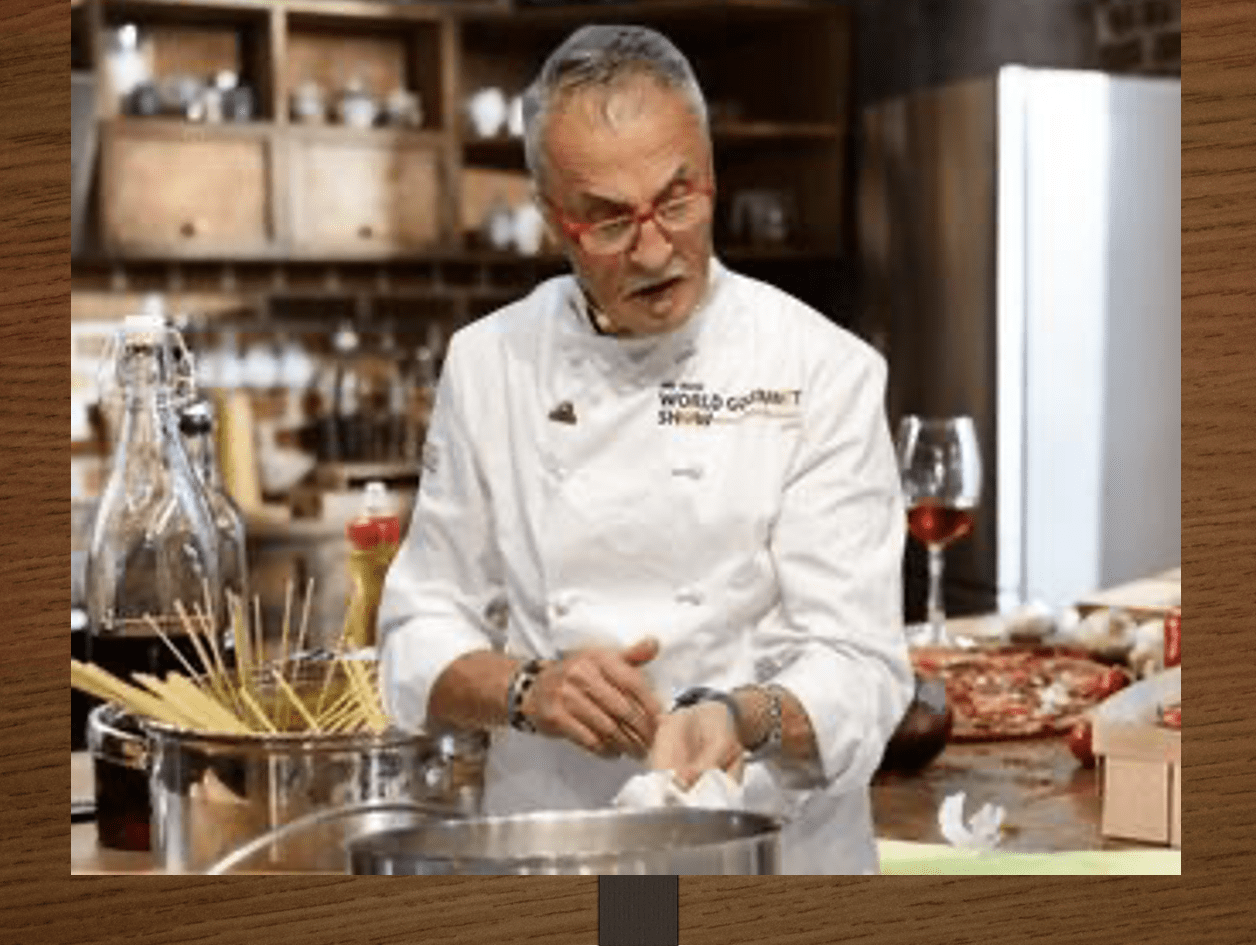
Meet Chef Walter!
There is a constant, recognizable thread in the career of Walter Potenza to elevate the level of Italian culinary culture in the United States. Besides his unquestionable culinary talent and winning business perspective, Chef Walter has been a relentless educator with passion and knowledge who defeats stereotypes. His life, career, and values are a model, an example to follow by any chef of Italian gastronomy working outside Italy.
Chef Walter appears regularly on National and International Networks such as Food Network, ABC, CBS, NBC, RAI, FOX, and Publications such as NY. Times, Washington Post, Wall Street Journal, Food & Wine, Saveur, Gourmet, and several Italian media outlets. And now “ RINewsToday!

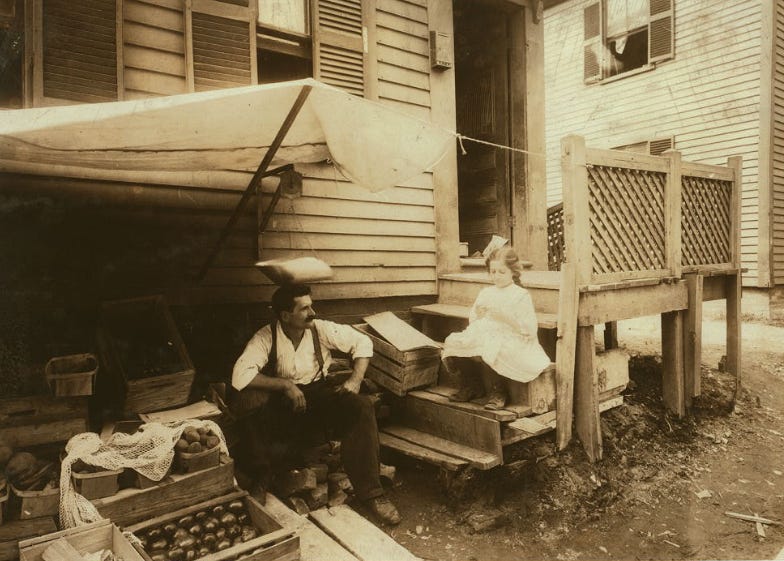
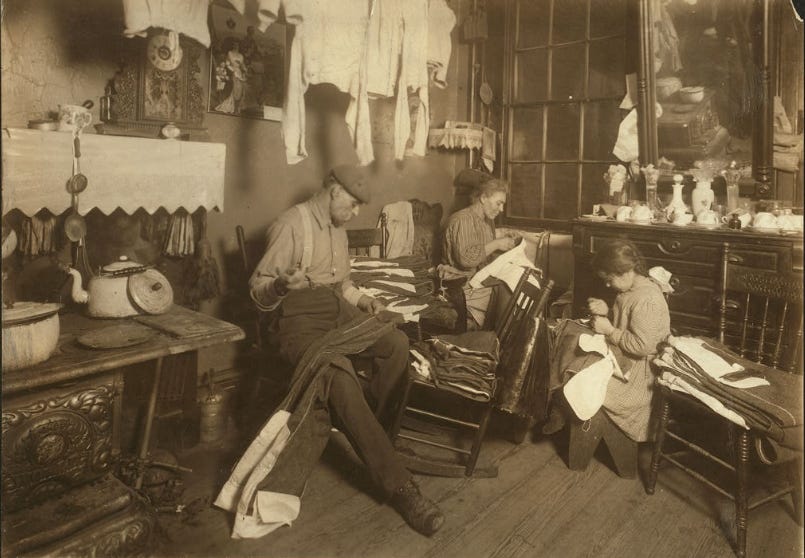
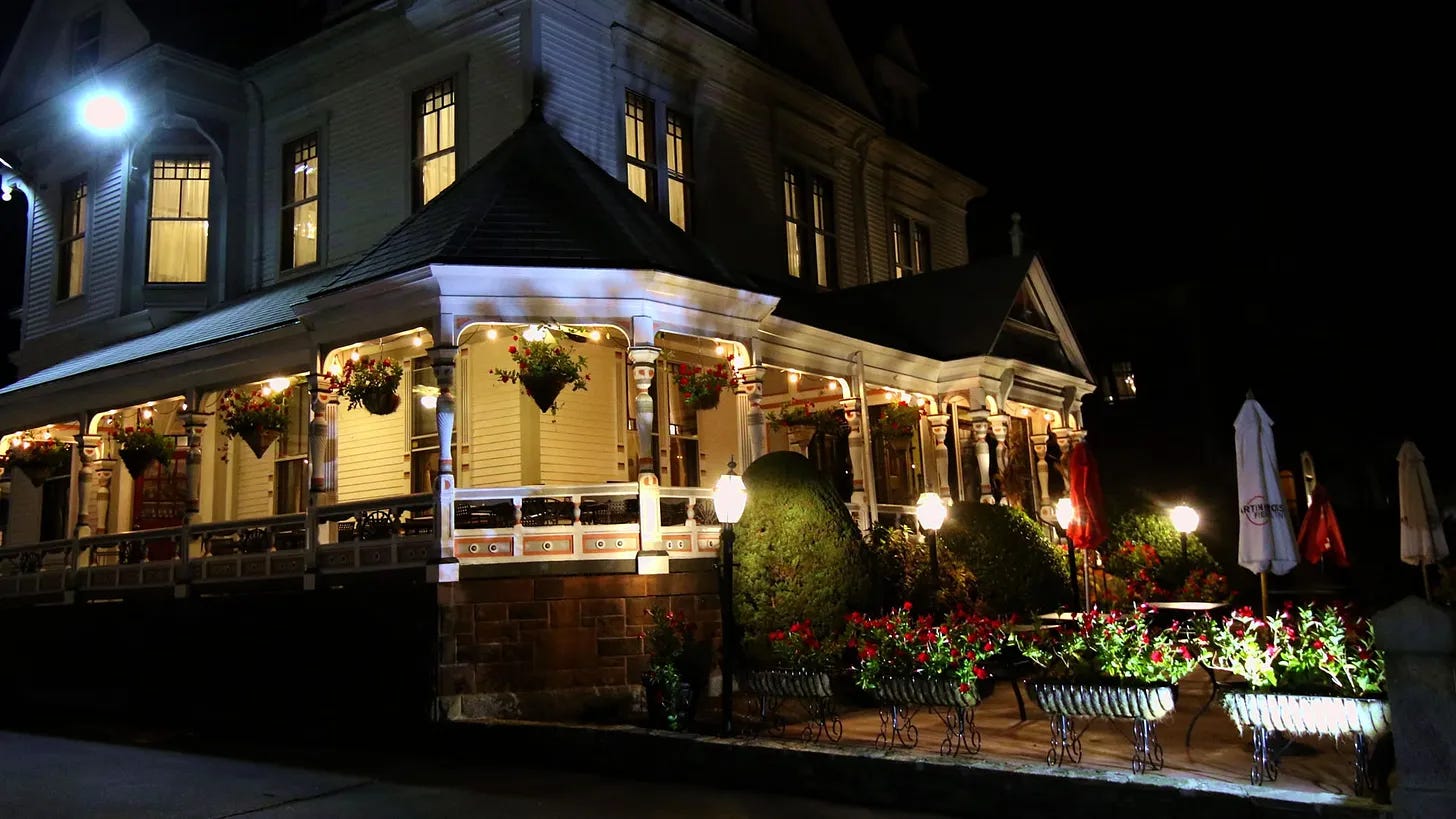
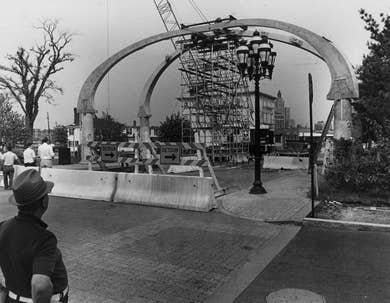

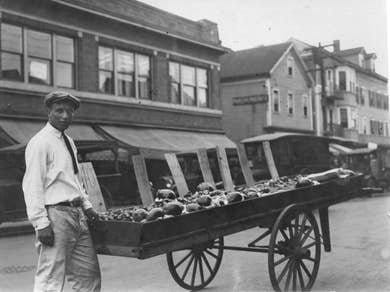
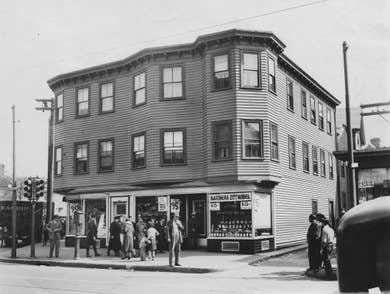
Federal Hill is to Providence as the North End is to Boston – a cultural and epicurean enclave that should be preserved at all costs!
Walter: Excellent, right on target, a blueprint for the future if success is the goal. You have done more for The Hill than many, and have acknowledged those who have the same vision. Continue your efforts and great work. It is vital to the continued growth and development and success of both our heritage and our future.
Bravo to chef Walter. Especially thoughtful legacy is not nostalgia it’s visionon and adaption. Wonderful writing, we need more people like Walter.